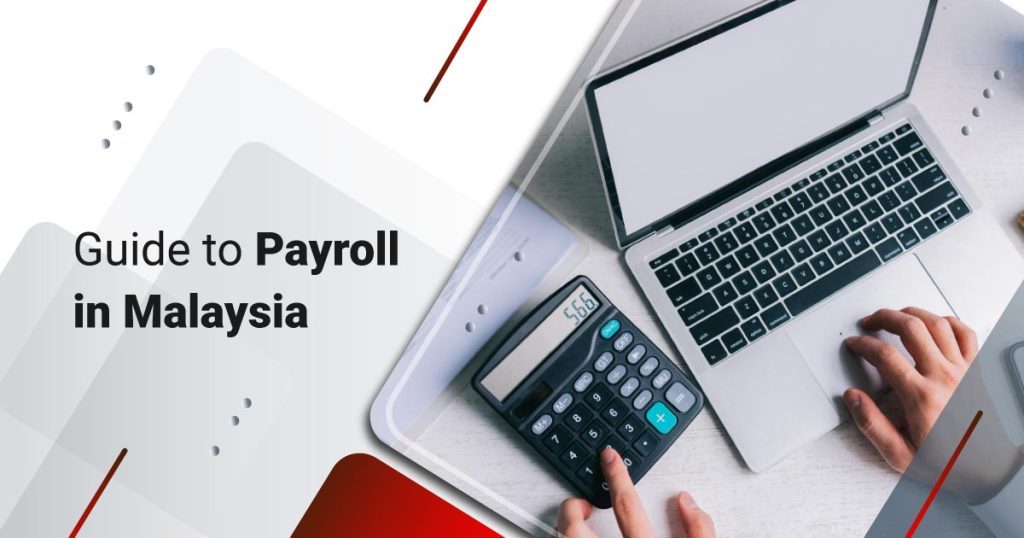Malaysia, by many forward-thinking entrepreneurs, is still considered a “ground floor” opportunity, and for good reason. Malaysia is certainly doing its part for the rapidly growing ASEAN bloc, predicted to be the world’s fourth-largest economy by 2030. It’s not just future potential — with impressive GDP growth (8.7% as of the last recorded year), the country already serves as a vibrant hub for businesses, offering an ideal environment for growth and development.
For companies operating within this fast-changing landscape, managing payroll efficiently and effectively is crucial for not just local compliance, but creating a transparent culture to foster employee satisfaction. In this article, we’ll cover essential topics such as income tax, leave entitlements, and social security contributions.
This guide aims to arm employers with the knowledge to navigate their organisation through Malaysia’s payroll complexities efficiently, fostering a transparent and satisfying workplace environment for employees while adhering to local laws and regulations.
Overview of Malaysia’s Payroll and Employment Landscape
Malaysia’s commitment to becoming a modern, transparent, and fair economy is evident in its rigorous enforcement of employment laws. As the country positions itself as a key player in the global market, it is essential for businesses to understand that Malaysia does not take a lax approach to employment regulations.
Navigating the legal and regulatory landscape of payroll in Malaysia demands a comprehensive understanding of employment laws, tax regulations, and social security requirements. Businesses must adhere to the Malaysian Employment Act (EA), as well as several other long-standing pieces of legislation, which outline minimum standards for wages, working hours, and other employment conditions.
The Inland Revenue Board of Malaysia (LHDN) demands strict compliance with tax laws, requiring employers to deduct and remit employee income tax accurately. Failure to comply with these regulations can result in significant penalties, highlighting the importance of a meticulous and well-informed approach to payroll processing.
Malaysian Taxation Requirements
In Malaysia, managing income tax contributions forms a critical part of the payroll process, requiring strict adherence to the guidelines set by the Inland Revenue Board of Malaysia (LHDN). The fiscal year in Malaysia spans from 1st January to 31st December, setting the timeline for tax obligations for both tax residents and non-residents (employees working in Malaysia for between 60 to 182 days per year). Both tax residents and non-residents are subject to a tax rate capped at 30% for incomes exceeding MYR 2,000,000.
Income Tax Compliance
Every employee is required to file their taxes for each calendar year by the deadline of 30th April. A thorough understanding of the tax reliefs available is neccessary, which can substantially reduce the taxable amount. Some of the notable tax reliefs include:
- Insurance Premiums: Premiums paid for education or medical benefit insurance.
- Education Fees: Costs associated with personal education, enhancing one’s skills or qualifications.
- Electronic Devices: Expenses incurred from the purchase of electronic devices, aimed at facilitating work-from-home arrangements or digital learning.
These reliefs play a crucial role in financial planning for individuals under payroll in Malaysia, enabling them to maximise their take-home pay while complying with tax obligations.
Malaysian Income Tax Breakdown
The following table lists income tax rates for resident individual taxpayers in Malaysia:
| Chargeable Income (MYR) | Proposed Tax Rates (%) | Tax Payable (MYR) |
|---|---|---|
| 0 – 5,000 | 0 | 0 |
| 5,001 – 20,000 | 1 | 150 |
| 20,001 – 35,000 | 3 | 600 |
| 35,001 – 50,000 | 6 | 1,500 |
| 50,001 – 70,000 | 11 | 3,700 |
| 70,001 – 100,000 | 19 | 9,400 |
| 100,001 – 250,000 | 25 | 46,900 |
| 250,001 – 400,000 | 25 | 84,400 |
| 400,001 – 600,000 | 26 | 136,400 |
| 600,001 – 1,000,000 | 28 | 248,400 |
| 1,000,001 – 2,000,000 | 28 | 528,400 |
| 2,000,000 and above | 30 |
Non-resident individuals are taxed at a flat rate of 30% on total taxable income.
Zakat Deductions
For Muslim employees, the zakat represents a compulsory religious contribution, distinct from the conventional income tax system. This form of almsgiving is a fundamental aspect of Islamic finance and is eligible for deduction as a tax relief. Employers can make zakat deductions directly from the salaries, streamlining the process for Muslim employees and ensuring compliance with religious obligations.
Malaysian Social Security Contributions
In Malaysia, the social security contributions system plays a vital role in ensuring the welfare of employees by providing financial security and support in various circumstances, such as retirement, employment injuries, and unemployment.
The primary statutory contributions that employers are required to make on behalf of their employees include the Social Security Organisation (SOCSO), the Employment Insurance System, the (EIS) Employees Provident Fund (EPF), and the Human Resource Development Fund (HRDF). Each of these contributions is designed to address different aspects of employee welfare and development.

Social Security Organisation (SOCSO)
SOCSO administers Malaysia’s social security protections under the Employees’ Social Security Act, focusing on two main schemes: the Employment Injury Insurance Scheme (EIIS) and the Invalidity Pension Scheme (IPS). The EIIS provides compensation for work-related injuries or diseases, ensuring employees are covered in the event of workplace accidents or occupational illnesses.
Meanwhile, the IPS offers financial support to employees who suffer from long-term illnesses or disabilities not related to work, and to the families of employees who have passed away. The contributions to SOCSO are mandatory for employers and employees under 60 (with some exceptions). They are based on a tiered system depending on the employee’s monthly salary and are set to a maximum sum of MYR 86.65 for the employer and MYR 24.75 for the employee.
Employment Insurance System (EIS)
The EIS is a government-initiated program designed to offer financial assistance and support to employees who find themselves unemployed for reasons not related to work. It includes a comprehensive support system offering unemployment benefits, job search assistance, training allowances, and career counselling to help affected individuals re-enter the workforce.
The contribution rate for EIS is set at 0.2% of an employee’s monthly salary, which the employer fully bears. This initiative underscores the government’s commitment to maintaining a resilient workforce capable of adapting to economic changes and challenges.
Employees Provident Fund (EPF)
The EPF is the basis of Malaysia’s retirement planning system, requiring both employer and employee contributions. It is a compulsory savings scheme that aims to ensure employees have a financial buffer once they retire.
Contributions to the EPF are primarily based on the employee’s monthly wages, with employers required to contribute 12% of their employees’ monthly wages. This methodical and equitable approach allows employers to meet their statutory obligations while supporting employees’ long-term financial security.
Human Resource Development Fund (HRDF)
The HRDF is a levy imposed on employers to fund employee training and development programmes. Aimed at enhancing the skills and competencies of the Malaysian workforce, it is compulsory for employers to register under the Pembangunan Sumber Manusia Berhad Act 2001 (PSMB).
Employers with 10 or more Malaysian employees are required to contribute 1% of their employees’ monthly wages to the fund. For smaller employers with 5 to 9 Malaysian employees, the rate is set at 0.5%. This contribution facilitates continuous professional development and upskilling, ensuring the workforce remains competitive and adaptable.
Leave Entitlements in Malaysia
In Malaysia, employee welfare is not just a matter of financial security but also involves well-considered leave entitlements. These entitlements ensure that employees enjoy a balanced work-life integration, contributing to their overall well-being and productivity. Here is a breakdown of the leave entitlements for employees under the Malaysian payroll system.
Sick Leave
Sick leave entitlement is a critical aspect of employee welfare, with allowances ranging from 14 to 22 days of paid leave based on the employee’s service duration. This ensures that employees can adequately recover from illness without the worry of losing income or infecting coworkers, thereby promoting a healthier and more productive workforce.
Public Holidays
Employees in Malaysia are entitled to observe 11 public holidays annually. These include key national and state celebrations that reflect the country’s cultural diversity and patriotic spirit. The list includes:
- The Birthday of the Yang di-Pertuan Agong
- The Birthday of the Ruler or Yang di-Pertua Negeri or Federal Territory Day
- Malaysia Day
- National Day
- Labour Day
These public holidays are mandated across the country, allowing employees to participate in national festivities and observe important cultural events.
Annual Leave
The provision of paid annual leave in Malaysia varies according to the length of service an employee has with their employer. The entitlement ranges from 8 to 16 days, providing employees with ample opportunity to rest, pursue personal interests, or spend time with family and friends. This progressive structure rewards longer service with increased leave benefits, encouraging loyalty and longevity in employment.

Other Leave
In addition to the standard leave types, Malaysian employment law also accommodates various other leaves, catering to the diverse needs of the workforce:
- Maternity Leave: New mothers are entitled to 60 consecutive days of paid maternity leave for each of their first five children, supporting new mothers in their postnatal recovery and bonding time with their newborns.
- Paternity Leave: New fathers are granted up to 3 days of paid paternity leave for each of their first five children, recognising the importance of paternal involvement in the early stages of a child’s life.
- Compassionate/Bereavement Leave: This leave is provided at the employer’s discretion, allowing employees to take time off during difficult times such as the loss of a loved one.
- Study Leave and Marriage Leave: These are also subject to the employer’s approval, enabling employees to pursue further education or celebrate significant life events without the stress of work commitments.
These leave entitlements reflect Malaysia’s commitment to promoting a supportive and flexible working environment. By ensuring employees have access to generous leave benefits, employers in Malaysia contribute to a culture of respect and understanding, which in turn benefits the overall productivity and satisfaction of the workforce.
Where to Next With InCorp
As Malaysia continues to grow as a key player in the ASEAN economic landscape, understanding the intricacies of payroll management becomes a critical factor for businesses aiming to thrive in this emerging, dynamic environment. From navigating tax obligations and social security contributions to ensuring employees enjoy their rightful leave entitlements, the complexity of payroll in Malaysia requires a knowledgeable and meticulous approach.
For businesses looking to streamline their payroll processes while ensuring full compliance with local regulations, partnering with InCorp offers a strategic advantage. With our expertise in managing and outsourcing payroll complexities, InCorp is ready to help your business foster a transparent, satisfying workplace environment that supports both organisational growth and employee welfare. Contact InCorp today to navigate your payroll needs with ease and efficiency.
FAQs About Payroll in Malaysia
- In Malaysia, income tax rates for employees vary based on their income level, with rates progressively increasing for higher income brackets.
- The Employees Provident Fund (EPF) requires both employer and employee contributions, with the employer contributing 12% and the employee contributing a specified percentage of their monthly wages towards retirement savings.
- Yes, foreign workers are subject to certain social security contributions, such as the Employment Insurance System (EIS), depending on their employment terms and conditions.
- Employees in Malaysia are entitled to 11 public holidays annually, including National Day, Labour Day, and Malaysia Day, among others.
- Yes, employees can claim tax relief for personal education expenses, which is part of the government's incentive to encourage professional development and skill enhancement.


